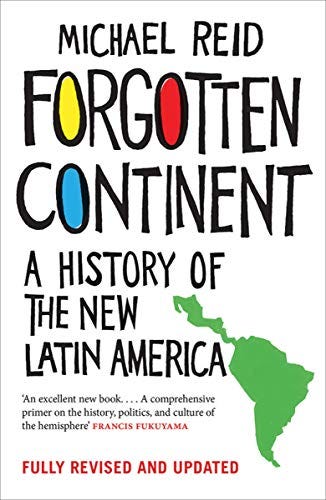About Systematic Organization
I’m Paul Musgrave, a political scientist and writer. This is Systematic Organization, my newsletter about my thoughts regarding politics and the study of politics. The newsletter takes its title from a line in The Education of Henry Adams:
Politics, as a practice, whatever its professions, had always been the systematic organization of hatreds, and Massachusetts politics had been as harsh as the climate. The chief charm of New England was harshness of contrasts and extremes of sensibility—a cold that froze the blood, and a heat that boiled it—so that the pleasure of hating—one's self if no better victim offered—was not its rarest amusement; but the charm was a true and natural child of the soil, not a cultivated weed of the ancients.Everyone agrees that presidential leadership matters.
This week, we’re talking about what I learned when I took a graduate course in my field…when I was already a professor.
A Quick Programming Note
My goal is to give you a weekly newsletter. This week we’re really coming down to the wire because this is my first week back in the classroom* (*not a classroom, it’s my new home office) and let me tell you: teaching like this sucks.
Every course this term is a new preparation (or “prep” in academic lingo), even though two of my three courses are ones I’ve taught before. Moving everything online means that everything has to be redone. Have lecture slides for a 75-minute session? Well, no students will sit through 75-minute vidoes (hell, I don’t do that myself), so you have to break those down.
And because recording anything is different from live prep, get ready to script, or at least very closely outline, everything you’re saying, because the normal amount of repetition and emphasis that you’d use in live presentations falls completely flat in recorded lectures.
So suddenly one 75-minute lecture is actually two or three 15-minute scripted presentations. Although you can just do this on the fly, I have to say that this seems a little disrespectful of students to me—why not actually do your best? And doing one’s best might require doing two takes, or in my case learning how to use a lav mic and a teleprompter app. (That said, I know a lot of folks are juggling significant amounts of care responsibilities, and I’m absolutely not being critical of folks who are already working beyond their anything reasonable.)
This week, in other words, has been hard. I’m not putting together the usual amount of links and other background reading I normally would because, first, analytics suggest nobody’s clicking the links and, second, it takes more time to find a link than you’d think. Even though citation is good academic practice—and politics—then, this week I’m going to skip it.
uNcOnVeNtIoNaL
Over the past two weeks, Twitter and the media have gone gaga over the Democratic and Republican conventions.
I watched the Democratic one, but not the Republican one, because at this point I don’t feel like there’s anything left for me to learn. If you’re on Twitter at all, of course, you can’t get away from commentary about either of them, and so I still feel reasonably informed.
And that’s how I formed my impression that both conventions were indeed “unconventional.” That word went from being a wry observation to a cliche to an in-joke within about 45 minutes of the DNC’s beginning—my goodness, everyone said as we watched the Rhode Island segment about calamari, this is so unconventional.
But it really wasn’t. Yes, the form of the DNC was innovative, and I even liked the old-fashioned hokiness of the state roll-call (including the charming amateurishness of the calamari come-back state, down to the state party not actually vetting the guy holding the appetizer).
Yet when you come down to it, the DNC hit most of the usual notes in a change election: our guy is good and sympathetic, our vice-presidential nominee could take over, the party is unified, and the incumbent is bad. Okay, so in this case the incumbent is extra bad, and Barack Obama finally took some time off from Netflix content development to tell us that Donald Trump is bad for democracy.
(A long parenthetical. I know I’m in the minority in having a little bit of a chip on my shoulder about the best president of my adult lifetime. Look, I’d also vote for Obama for a third term if I could, even after Get Out made that phrase, especially said by a White guy like me, an automatically cancellable offense. And I know a lot of people liked that speech, and it was pretty good, but also it’s now … August 2020? and many of us have been saying this since August 2015, and frankly it would have been nice to hear that speech (or, you know, do something about the Russians) back in, say, August 2016. To hear the speech praised as if it was a revelation felt a little bit off, like having someone tell Scooby and the gang that the real villain behind the goings-on at the abandoned mill was Old Man Milken all along…after they’ve unmasked the ghost and already identified Old Man Milken.)
What resounded from the Democratic convention, in other words, was a kind of hypernormalcy. You like normal White guy presidents? Here’s a guy who will be the best kind of that—all the stuff you like about them (normal, reassuring, manly in a 1950s way) with none of the creepy stuff, or the oligarchic stuff, or the scary stuff that comes with this guy. Even the way that the Black Lives Matter protests were shown here made them feel natural while doing all of the work that the party needed to do to, you know, actually win an election.
As everyone’s pointed out by now, however, the Republican convention was nothing like that. This wasn’t red meat for the base. This was raw chum for the sharks. And the finale at the White House really was redolent of chavismo and other forms of authoritarian politics, even down to the long-winded speech and the parading of the First Family.

The anti-immigrant president grossly abusing his office as part of a partisan political stunt while treating aspiring citizens as nothing more than props.
Someone ought to tell Trump he needs a presidential sash to complete the strongman picture.
Many of the folks reading this by now have accepted that the Republican convention was worse than unconventional—it was harmful. But what I want to do is push forward with this. The old norms have been pretty well shattered, and I think that trying to glue them back together again is a project we should reconsider. Simply declaring things “unconventional,” after all, is only the beginning. We should start thinking a lot harder about what conventions actually merited our support in the first place.
Sure, put some of them back together—like the Hatch Act, or not using pardons to protect the president. But others, like the creepily, creeping monarchization of the presidency? Let’s not put those back together. Let’s divest the presidency of whatever symbolic glamour and personalization we can. Cut the presidency back to size and redirect attention to the Article I branch, especially if the Democrats win.
This would have a limited impact because the presidency is an outsize office and the president will always play an outsize role in politics if he or she has any horse sense whatsoever. But there’s lots of things to be done at the margins, or even farther. And thinking really clearly now about how to invent a new “normal” that Biden and successors can inhabit is pretty urgent.
Because one of the healthy things about realizing how unconventional everything has gotten is to help us get some distance on the unhealthy status quo ante that we used to live in. The Trump administration is unprecedented, but mostly in its combinations of every bad trait of its predecessors than in pioneering any new badness.
And maybe it’s time to think about what conventions we should keep from the Before Time, and which ones we should junk. The best unconventional parts of the DNC were the parts that took familiar elements and actually adjusted them for a country that’s way different than when those patterns were invented. And just as it shouldn’t have taken a pandemic to junk the needless points of the convention—which are, to be clear, mostly the in-person audiences and everything else that nobody actually missed—it shouldn’t have taken Trump for us to really rethink how and what the presidency should be in a country like this one which has changed a lot since FDR and others invented the modern chief executive.
What I’m Reading
This week, our featured book is Michael Reid’s Forgotten Continent.

Somehow, I got a Ph.D. in international relations without learning all that much about entire continents (to be precise, two continents—South America and Africa—and one subcontinent, South Asia). Over the last several years, I’ve been trying to fix that problem, which is hard because it turns out that those three regions have a lot of history and culture that I wasn’t familiar with.
As part of that project, I downloaded Reid’s book more or less sight unseen, mostly because the length was right and because I missed the word “new” in the title. (I was hoping for something that went back to the Spanish colonial period.) As you can tell from the fact that I’m recommending it, it still ended up doing the job of helping me to catch up on more or less the last 80 years of Latin American history.
Reid, a former correspondent from the Economist, definitely has an agenda. Unlike most of what I’ve encountered about Latin America, he’s not a big fan of leftist explanations. And sometimes he’s too eager to let the U.S. off the hook. On the other hand, much of what I’ve read about Latin America is too eager to indict the U.S. for everything that’s gone wrong and to ignore the harms that mismanagement can inflict on countries. And Reid is also way more honest about the U.S. role than most American outlets, which makes him seem like a bearded radical compared to mainstream portrayals of the subject in the U.S.
So this is a qualified endorsement but an endorsement nonetheless. Over the coming weeks and months, I hope to share some more recommendations from this project of filling the gaps in my knowledge about the world.
Help A Classroom Out
I’m Paul Musgrave, a political scientist and writer. This is Systematic Organization, my newsletter about my thoughts regarding politics and the study of politics. The


